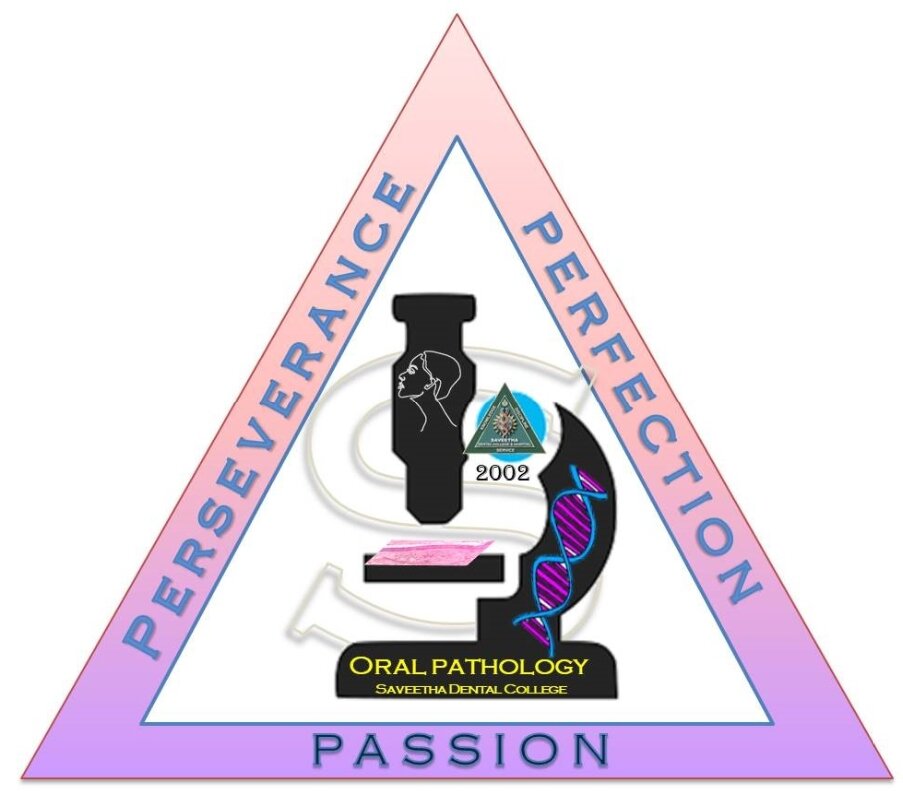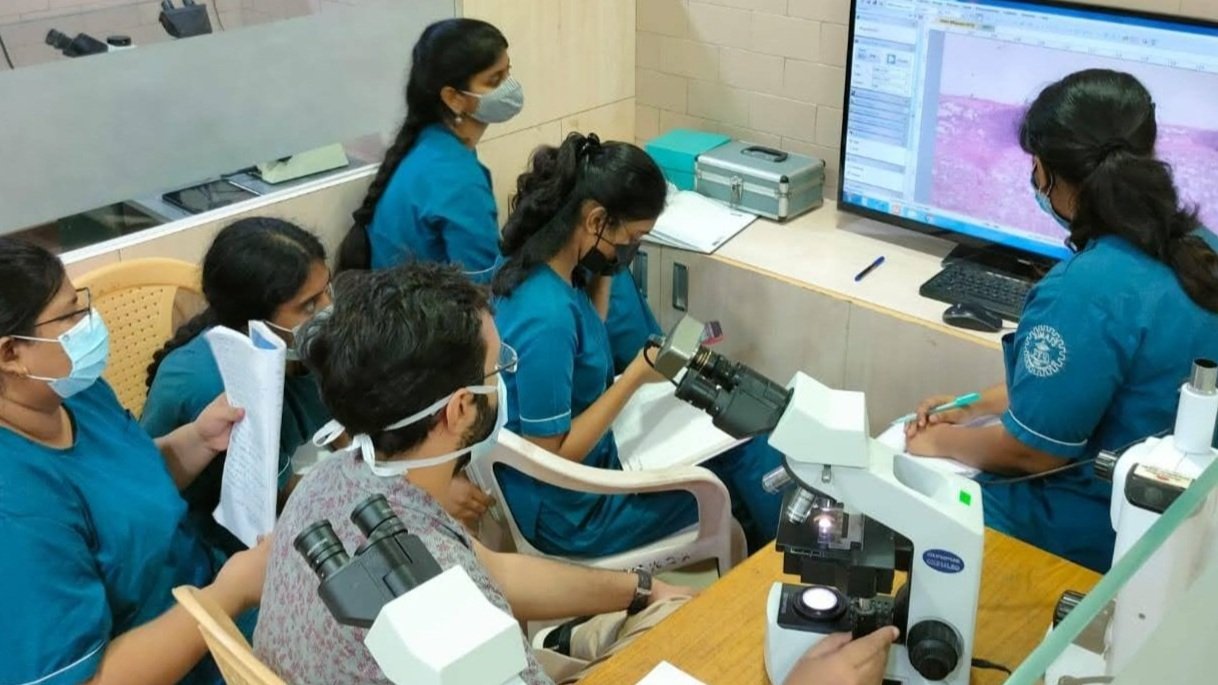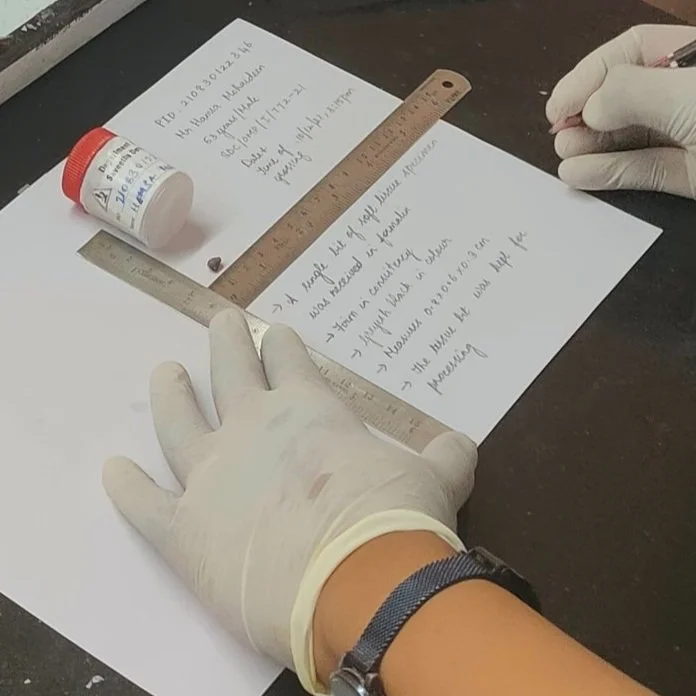“A good teacher can inspire hope, ignite imagination and instill a love of learning
— Brad Henry
Module based learning for MDS
The PG curriculum is divided into 12 quartiles - each quartile composed of modules. At the end of every quartile, a thorough assessment comprising of practical and theory examination is conducted. It is evaluated with External examiners to ensure that the module has been completed successfully.
Elective courses
We are the first institution to offer wide range of elective modules across all specialties in dentistry, molecular research and basic medical sciences.
PG students can choose up to five elective courses based on their interests.
Expertise in Pathological Diagnosis
Competency to diagnose a wide variety of head and neck lesions.
Surgical pathology reporting on par with global standards.
Largest Number of Cases and Archives
The First ever Department in the Country to offer running slides and cases to first year post graduates.
Frozen Section
The only Dental College in the Country to have a state of art Leica Cryostat offering intraoperative consultation to the Surgeons.
The Postgraduates are posted in rotations for exposure to Frozen Section procedure.
Excisional Biopsy
Post graduates are trained in Surgical pathology grossing and reporting based on CAP-PROTOCOL Standard of reporting.
Surgical Pathology Grossing
Surgical Pathology Grossing in an integral part of Surgical Histopathology.
Our postgraduates are trained in grossing procedures of a variety of head and neck specimens.
They are alternatively posted as grossing in Charge for every week. This exposure and training makes them astute in Gross Pathology.
IHC
The department houses the largest collection of Diagnostic and Research Primary Antibodies for Immunohistochemical Procedures.
The Postgraduates are trained in house to perform Immunohistochemistry procedures.
Molecular Biology, Genetics and Bioinformatics
The postgraduates are trained in Molecular Biology Methods and Genetics including DNA, RNA extraction, PCR and RT-PCR analysis, Nano-Drop, Western Blot, ELISA etc.
We have dedicated Research scientists in our State of the Art -BLUE-LAB-.
Post graduates are encouraged to develop methods and software tools for understanding biological data.
They are trained to build computational models of a biological process at the molecular level which can be applied for research on diseases and drug discovery.
Cytopathology, Hematopathology and Clinical Microbiology
Emphasis is placed on understanding the pathogenesis of a disease process. The use of laboratory data for prognostic and therapeutic decision making, which aids in clinico-pathological correlations.
They are also trained in cytopathology including specimen collection, fixation, smear preparation, Slide reading and interpretation.
Inculcating competence to detect, characterise and quantify micro-organisms from clinical samples. This enables the students to diagnose, manage and treat infectious diseases. It also enhances their self-confidence in setting up independent clinical pathology practice.
Oral Histology
Enhanced learning and understanding of the basic oral tissues, development and histology and understanding histopathological features. Learning oral pathology in digital perspective provides research opportunities in craniofacial development, material sciences and oral biology.
Microscopy
A module is dedicated for microscopy, various types of microscopes, clinical application and in-depth study of their mechanisms.
General Histology
Students are trained to appreciate and identify the microscopic features of different basic tissues of the body.
Special Stains
Our postgraduates undergo a training in Special stains - an efficient tool in diagnosis in Oral Pathology.
From preparation of every constituent to staining- every step is dealt in detail making them an expert.
Pathology Lab Administration
The students are trained by qualified personnel for lab administration protocol and Human resource management.
Forensic Odontology
Our post graduates are trained in Forensic Odontology by our expert team and forensic medicine specialists from across the globe. They focus especially in criminal and legal aspects of Forensic Odontology.
Research training is also their forte and they have numerous publications at the end of the course.
Oral Biology
Students are trained in various aspects of Oral Biology including Mechanics, Nanotechnology, and Biomaterials.
For more details - visit https://saveetha-oral-biology.squarespace.com/
Oral Biopsy Training
The Postgraduates are trained in performing Oral Biopsy procedures. It is a part of the PG curriculum which makes them a cut above the rest.
Oral cancer - Evidence based Standard care and Follow-up
We are the first dental college to be equipped with a dedicated oral oncology surgical team, expert oral pathologists, radiation oncologists and oncologists within its campus. We have regular tumor board meetings with inter-disciplinary collaboration.
PG students can experience comprehensive management of oral cancer patients with surgery, radiotherapy and chemotherapy. They can systematically collect data on prognosis and quality of life. They can educate patients on standard optimal care and predict treatment outcome based on clinco-pathologic parameters.
Community Oral Pathology
Through outreach camps, students experience and learn the community profile and needs of the society. It motivates them to design national projects assessing the oral diseases.
As a part of outreach programs, PG students are trained to identify the potential requirements for the prevention of oral disease which enable students to identify successes and challenges of current oral healthcare delivery.























